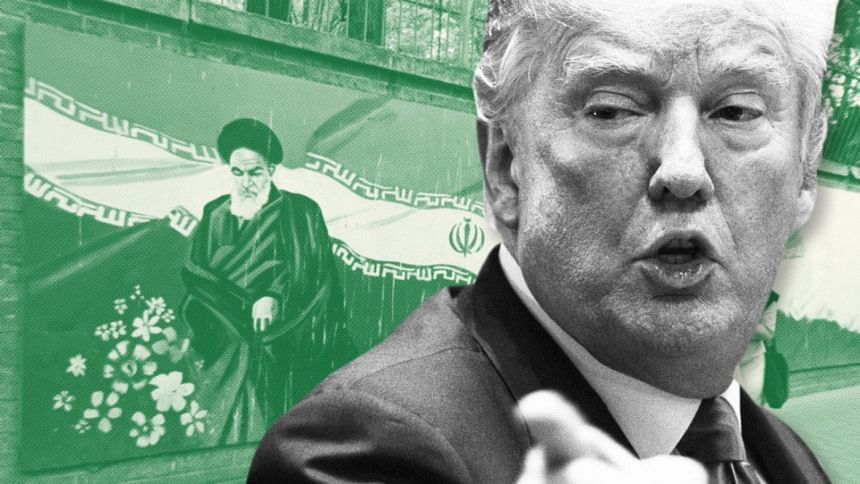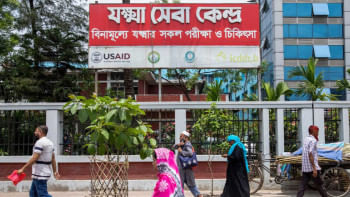Are present efforts enough to salvage the Iran nuclear deal?

History was made on this day in 2015, when Iran agreed to the landmark nuclear deal, better known as the Joint Comprehensive Plan of Action. The counterparties were the P5+1 nations—namely: the United States, the United Kingdom, France, Germany, Russia and China.
With the lifting of UN, US and EU sanctions and opportunity of free trade, the deal was to usher in a new era of economic prosperity for Iran and stability in the Middle East, already mired in various conflicts. And indeed, Iran's economy did witness growth. But it was a dream short-lived.
With the 2016 change in administration in the United States, outlook towards the deal soon changed. There were concerns in the corridors of the Oval Office about the justification of the US staying in the JCPOA—according to dissenting voices, the deal failed to cover key areas including Iran's missile weapons and its role in the region.
Hawkish American officials, including the National Security Adviser John Bolton, who was late last year awarded the "Defender of Israel Award" by the Israeli lobby group Zionist Organization of America (ZOA), had been vocal in their concerns about the terms of the JCPOA.
And one month into office, in May 2018, Bolton, along with his hardline colleagues, put the final nail in the Iran Nuclear deal coffin, by pushing Trump to withdraw from the deal completely, calling the deal "defective to its core". Harsh sanctions on Iran soon followed.
Iran's economy experienced a dramatic slump. With crippling sanctions on the oil, petroleum and banking sectors, the Iranian economy, according to IMF forecasts, is expected to experience negative growth of 6 percent. Inflation has reached a staggering 40 percent. And with fresh sanctions on the metal industries, employing a 600,000-strong workforce, the Iranians are bracing themselves for further unemployment and economic hardships.
In the face of such harsh economic warfare, Iran appealed to the European signatories of the JCPOA to help the country mitigate losses from the US' unilateral sanctions. After scrambling for months, Europe came up with the solution, a special purpose vehicle (SPV) called INSTEX, that would enable corporates to carry on trade with Iran, circumventing American sanctions.
The system is simple: INSTEX is a barter system that would enable companies to import from and export to Iran, without direct cash transactions with Iran. For instance, a company exporting medical equipment to Iran can register with INSTEX and collect cash from another company, also registered with INSTEX, which is importing nuts from Iran, theoretically at the snap of a finger.
Implementing INSTEX in the real world, unfortunately, is not as simple as it sounds in theory. The major problem is, most companies fearing secondary US sanctions are not willing to join INSTEX. The E3 countries have created a "diplomatic shield" to protect companies trading with Iran through INSTEX, by state-sponsoring the SPV, and creating a governing council consisting of high-level government officials from the sponsoring countries, so that the US cannot create unnecessary pressure on these government-backed companies for conducting business with Iran. Yet, it does not necessarily mean that the US will not bully INSTEX-registered companies, because so far they have displayed little regard for diplomacy.
In addition, the JCPOA signatories also plan to open the SPV to third countries like Russia and China, who might be willing to trade in Iranian oil. In fact, having Japan, India, China and South Korea as traders on INSTEX might help Iran's oil business.
Another major challenge for the JCPOA signatories will be to convince major corporations to register with INSTEX because of the volume of business that they might potentially have to give up with the US, if they trade with Iran. After America slapped Iran with new sanctions, it had a clear message for international business, either do business with the USD 19 trillion US market or the USD 400 billion Iranian one—given the choice, it is not difficult to see why most businesses will shy away from INSTEX.
Another problem is, INSTEX can trade only in humanitarian goods like medicines and food, which are already outside the purview of American sanctions, and will have little positive impact on Iran's crumbling economy.
In April 2018, prior to the imposition of US sanctions on Iranian oil trade, Iran exported 2.5 million barrels per day of crude; the number had plummeted down to 300,000 barrels per day (bpd) in June 2019. Iran has the world's fourth-largest oil reserves and second-biggest gas reserves, and oil and petroleum products account for 70 percent of Iran's total exports; it is the country's main source of income.
In view of this, it is not surprising that since May 2018, Iran's economy is on a steep decline. Unless INSTEX allows oil and metal trade, the impact of this SPV on Iran's economy will be minimum and may not be viable in the long-run, as Iran's Oil Minister Bijan Namdar Zanganeh said, in an interview with Bloomsburg Television, "Without oil deal, it's very clear, INSTEX will not work."
Moreover, without oil trade, solvency might become an issue for INSTEX. Without proper import and export volume balance, payments through INSTEX to trading companies might be delayed and ultimately the system might even collapse.
INSTEX might be a good start and sends a strong political message to the US: that even without its support, the other signatories are willing to stand by their commitments to the Iran Nuclear Deal; nevertheless, the SPV in its current format will have very little impact on Iran. The country's Deputy Foreign Minister Abbas Araqchi was right in pointing out the insufficiency of INSTEX to address Iran's economic crisis, "It was a step forward, but it is still not enough and not meeting Iran's expectations".
Europe now must consider making INSTEX sustainable by allowing oil and metal trade though this instrument; the risk of failure remains high otherwise. Iran has so far shown significant restraint by remaining within the JCPOA and appealing to its other signatories for support in the face of strangling US sanctions. Even the country's scaling back of its JCPOA comitments has been measured and they are still allowing the IAEA inspectors to stay on its soil and monitor its nuclear activities.
The collapse of the Iran nuclear deal will not only mean failure of multilateral diplomacy in the Middle East, it will also perpetuate a dysfunctional world order, which will do no party any good. Now the question remains, is INSTEX enough to salvage what's left of the JCPOA?
Tasneem Tayeb works for The Daily Star.
Her Twitter handle is @TayebTasneem.

 For all latest news, follow The Daily Star's Google News channel.
For all latest news, follow The Daily Star's Google News channel. 



Comments